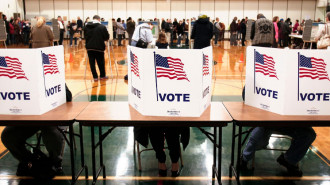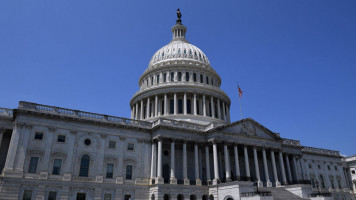UN: Rohingya persecution 'human rights nightmare'
Guterres has prepared to tour makeshift shelters overcrowded with people fleeing the brutal Myanmar’s army in what the UN has described as ethnic cleansing. He described the situation for the persecuted Muslim minority as "a humanitarian and human rights nightmare."
"In Cox's Bazar, Bangladesh, I've just heard unimaginable accounts of killing and rape from Rohingya refugees who recently fled Myanmar. They want justice and a safe return home," Guterres said on Twitter.
"The Rohingya are one of the most discriminated against and vulnerable communities on Earth," he said in tweet before his visit to the camps in southern Bangladesh.
Accompanied by the head of the World Bank, Jim Yong Kim, he called it a "mission of solidarity with Rohingya refugees and the communities supporting them. The compassion & generosity of the Bangladeshi people shows the best of humanity and saved many thousands of lives".
Some 700,000 Rohingya Muslims have fled over the border to Bangladesh since August to escape a bloody military crackdown that has left a trail of torched villages in its wake as refugees allege murder and rape by Myanmar's armed forces.
A report released by leading international rights group Amnesty International, found that Myanmar's military chief has overseen an "orchestrated, systematic attack" on the country's Rohingya population.
The report - titled "We Will Destroy Everything: Military Responsibility for Crimes against Humanity in Rakhine State, Myanmar" - found: "the ethnic cleansing of the Rohingya population was achieved by a relentless and systematic campaign in which the Myanmar security forces unlawfully killed thousands of Rohingya, including young children".
It also accused security forces of sexual violence, torture, forced displacement and burning markets and farmland that starved communities and forced them to flee.
An internal investigation conducted by the military was released late last year, clearing themselves over the reported Rohingya atrocities, and was described as 'white-washing' by human rights groups.
In the past, Suu Kyi has defended the military operation, and authorities claim the security crackdown was in response to attacks by Rohingya militants on police posts.
Blame game
Myanmar has dragged its feet for months over the repatriation of the Muslim minority, insisting the region is safe for their return but refusing access to outsiders to evaluate conditions.
Myanmar and Bangladesh agreed in November to begin repatriating the Rohingya, but the refugees expressed concern that they would be forced to return and would face unsafe conditions in Myanmar if the process is not monitored by international aid groups.
The UN and other rights groups have warned that a mass repatriation of Rohingya would be premature, as Myanmar has yet to address the systematic legal discrimination and persecution the minority has faced for decades.
Despite Bangladesh and Myanmar vowing to begin repatriation in January, the plan has been repeatedly delayed as both sides blame the other for a lack of preparation. More than 8,000 refugees are waiting for repatriations according to a list compiled by Bangladesh.
Both countries have traded accusations over who is responsible for the delay. Bangladesh accuses Myanmar of trying to buy time by pretending to cooperate over repatriation for the benefit of the international community.

![Palestinians mourned the victims of an Israeli strike on Deir al-Balah [Getty]](/sites/default/files/styles/image_684x385/public/2024-11/GettyImages-2182362043.jpg?h=199d8c1f&itok=xSHZFbmc)


![The law could be enforced against teachers without prior notice [Getty]](/sites/default/files/styles/image_684x385/public/2178740715.jpeg?h=a5f2f23a&itok=hnqrCS4x)
 Follow the Middle East's top stories in English at The New Arab on Google News
Follow the Middle East's top stories in English at The New Arab on Google News


